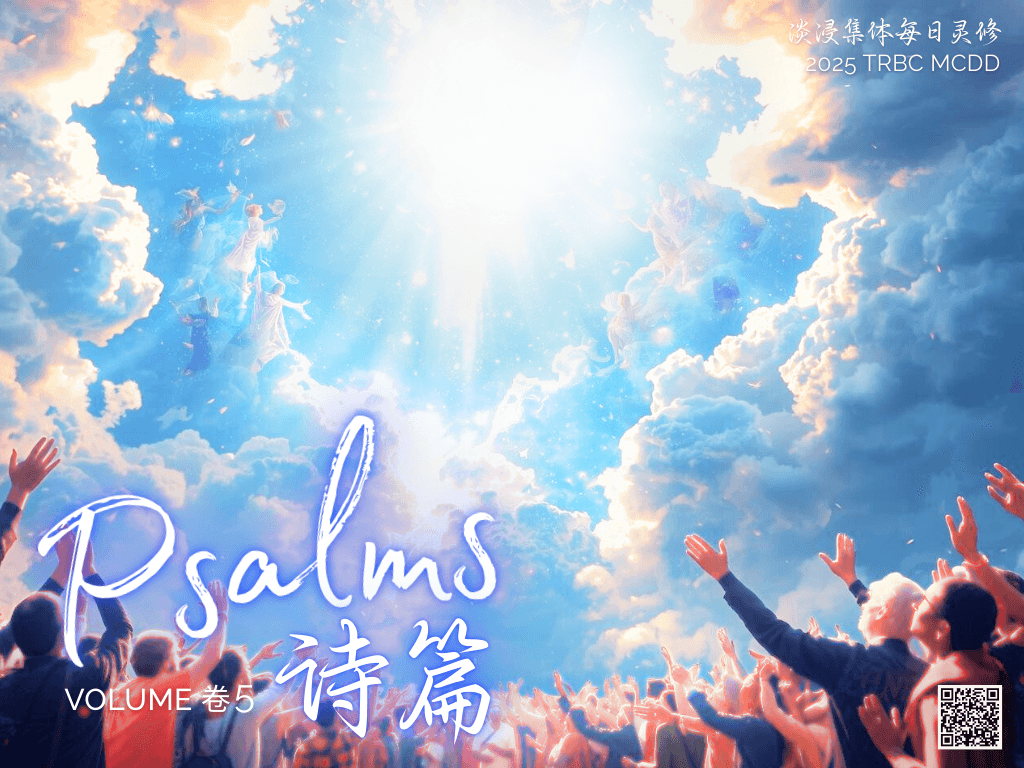

Click here to read Ch118
In Psalm 118, first-person pronouns such as “my distress” (verse 5), “I cut them off” (verse 11), “I shall not die” (verse 17) appears on numerous occasions; it seems to refer to the personal testimony of some individual people. On the other hand, third-person pronouns are also being used, such as “Let those who hear the Lord” (verse 4), “let us rejoice” (verse 24) and “we bless you” (verse 26); this can also be seen as a corporate song of praise. In any case, the individual testimony being shared by the person concerned symbolizes the general trials faced by every other person in the congregation. Along with these trials, the Psalmist includes how God intervened significantly with His acts of help throughout this song.
Firstly and interestingly, the Psalm begins with four repeated occurrences of the phrase “His steadfast love endures forever”; they appear at the end of each verse in the first four verses. The fifth and final appearance of this phrase is at the end of this Psalm in verse 29. For the very reason that the steadfast love of God endures forever, all of His people is to give thanks for His goodness. The Psalmist specifically mentions the nation of Israel (verse 2), the house of Aaron (verse 3) which belongs to the tribe of Levi and those who fear the Lord (verse 4) – all these people of God are to thank Him for His everlasting goodness. All these three groups of people - “Israel,” “house of Aaron,” and “those who fear the Lord” take turns to appear as the subject in the following sections below.
Secondly, verses 5 to 9 speaks of how God helps His people on an individual level – individual who fears Him. The person is in distress (verse 5) and cowered by fear from man (verse 6). The Lord answered the person, set him free and is on the person’s side to help him. Verses 8 and 9 sums up this section by saying that it is better to take refuge in the Lord than to trust in man or princes.
Thirdly, the scope of verses 10-16 then widens to how nations around Israel battle against her (verse 10). Though the nations are at war against Israel, the subject calls upon the name of the Lord and God cuts these nations off. The phrase “I was pushed hard, so that I was falling” describes the intensity of the battle and yet Israel calls upon the Lord who is her strength, song and salvation (verse 14).
Fourthly, the subject in this section (verses 17-20) can either refer to Israel as a whole nation or it can refer to the second section, referring to individual in distress. The dire situation of the subject can be observed through the intense expression “I shall not die but I shall live” (verse 17), “disciplined me severely” and “not given me over to death” (verse 18).
The Psalmist closes in verse 21 to 29 by proclaiming the promise of God that He is their salvation (verse 21) and the cornerstone (verse 22). The Psalter then calls on God to save and grant them success (verse 25).
Dear brothers and sisters, can you recall one incident in the past how God has helped you in the same way that He has helped the people in Ps 118? Pause and give thanks to Him for His goodness.
Prayer
You are my God, and I will give thanks to you; you are my God; I will extol you. Oh give thanks to the Lord, for he is good; for his steadfast love endures forever! (Ps 118:28-29)